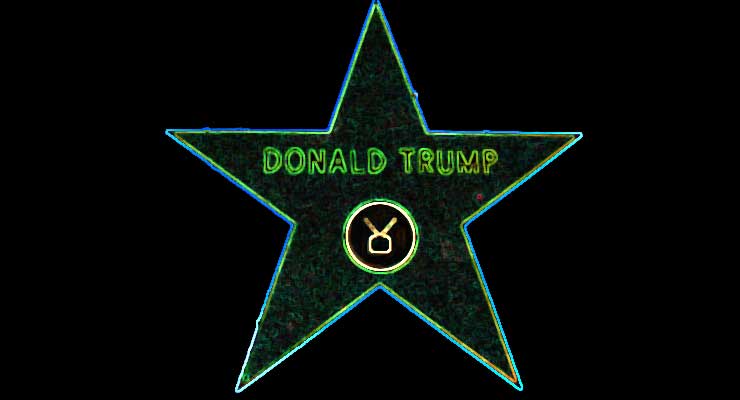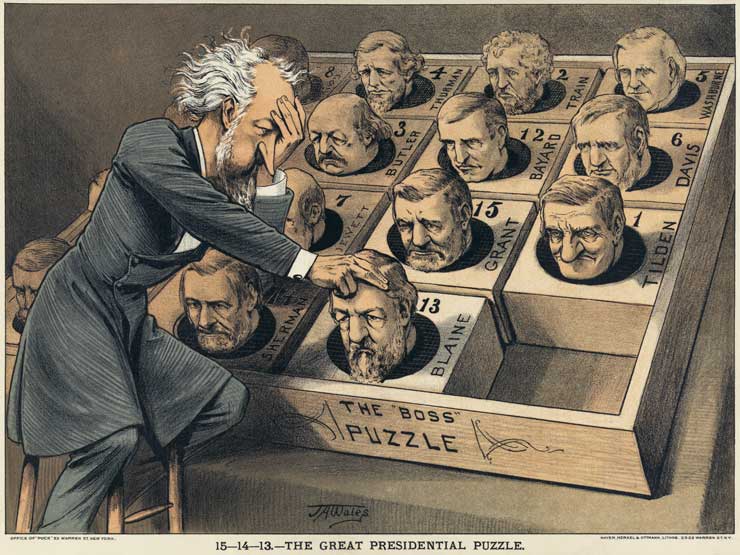
On November 8, 2016, the world watched in disbelief as Donald J. Trump won the election to become the 45th President of the United States. Trump’s campaign had dealt with more than just a few points of fracture throughout its run, including an embrace of arguably racist policy stances, a public fight with a Gold Star family, and a leak exposing a 2005 Trump spewing confessions of sexual abuse and misogynist comments. The hurt from this problematic image was evident to most Americans: national polls consistently reflected the overall perception of a racist, sexist and unknowledgeable Trump, with his rival Hillary Clinton winning by an average of five to eight points in exit polls. Meanwhile, traditional signs of a winner favored Clinton: her campaign and super-PACs managed to raise $1.2 billion, effectively beating Trump’s $647 million, and her advantage in financial support went into the making of some of the most effectual advertisements in the history of presidential campaigns.
But even strictly in terms of policy and expediency, most major pundits declared Clinton the winner of each of the three presidential debates and commented on Trump’s overall lack of preparation and political experience heading into the election. The unequivocal expectation of a Clinton win by the public and experts alike, thus, was not met to say the least, creating the most momentous political upset in recent history.
Yet with hindsight, the excitement of the Trump campaign alone shows how surprisingly effective Trump had been as a candidate. Even with guest superstars such as Beyoncé, Katy Perry, Demi Lovato, and Lady Gaga, Clinton struggled to fill up her venues, while Trump consistently drew thousands into larger arenas. At one event in Michigan scheduled just earlier that day, Trump attracted a crowd of more than fifteen thousand. In some weeks, the number of people unable to be seated due to a lack of space in just one of Trump’s rallies surpassed the number of people that had attended the several rallies Clinton hosted that entire week.
Katy Tur of NBC best describes this enthusiasm gap between Clinton and Trump supporters: “We would see Trump voters wait in negative-five degree snowy temperatures for hours on end, six hours, to go see Trump at a rally. Are they going to wait on long lines to vote for Trump? Yeah, I think so. Are Hillary Clinton voters going to take a day off work and wait in lines to vote? That is the big question…”. Tur evaluates the differences in excitement to gauge the extent of the willingness of supporters to vote, but her comments go beyond that: the stark contrast in enthusiasm for Trump has political insinuations that help make his victory understandable.
While Clinton had spent her entire campaign marketing herself as a political figure who would extend President Barack Obama’s legacy, and as a candidate deserving of the presidency due to her qualifications, Trump spoke relentlessly from his heart about issues he felt voters cared about, and did so without concern for how politically shrewd his positions were. People do not feel energized to vote for more of the same, no matter how pleasant or experienced the same is, and especially in key swing states that can either make or break the election in terms of the electoral vote.
In fact, since 1828, Democrats maintained control over the presidency for three consecutive terms only twice: in 1836, Martin Van Buren won the presidency against four other candidates and in 1940 Franklin D. Roosevelt extended his stay for a third term. Clinton had enough working against her just through her association with the incumbent party, and she did not help her case by aligning herself strictly to Obama and the policies of his two terms.
Trump also offers a more glamorous economic image that comes along with his assurance for change through his Republican label— the opportunity to “Make America Great Again” and the promise to allow the nation to attain just as much economic and material success as he and his family has. Even his choice for Vice President, Mike Pence, is based on selling this image, as Trump often introduces Pence noting his good looks and glossy appearance— “This is the primary reason I wanted Mike—other than he looks very good”.
The high culture, celebrity and opulence that came with Trump simply spoke to a mass culture of white working-class voters in a remarkably populist way. And Trump not only sold this image through his identity as a billionaire and his campaign choices, he also capitalized on it using his policy stances: his “America first” foreign affairs philosophy with an infrastructure jobs plan, his proposal to deport undocumented immigrants who unfairly “steal” jobs away from Americans, and perhaps most notably, his opposition to “unfair” trade deals, all suggest that Trump had wanted to speak to the workers who felt ripped off by mainstream politicians like Clinton and Obama themselves.
In a way, the Democratic Party played it safe by having a nominee who represented security and continuity in a crucial election that consisted of fulfilling a hunger for change. The economic motivation and dreams of voters that lay behind this election, thus, are understated in their ability to have decided the President of the United States—and Trump simply had an advantage as a Republican candidate, with uncertainty and the promise for a wealthier nation as core testaments to his popularity among working-class voters. Although Clinton did manage to win the popular vote, her efforts were not enough to capture the minds and hearts of the most important voters in swing states, and her interminable reputation as a corrupt politician surely only exacerbated her chances.
Moving forward, Hillary Clinton’s defeat proves the necessity of having a strong message for change and resonating with voters based on pure idealism and dreams, and not merely just experience or practicality. And if anything, Clinton’s ties to the dishonest nature of the Washington machine that had already been in place for decades only hindered her chances. And so, with the election of Donald Trump comes the wiping away of a flawed candidate who has proved herself incapable of designing and communicating an effective message. The future of the Democratic Party remains open, with the potential for more liberal and economically progressive politicians to rise: Trump’s election validates their ability to succeed. Just as Bill Clinton’s campaign strategist had famously stated in 1992, “It’s the economy, stupid,” and beyond that, it’s party politics and the very essence of change inherent in elections.

Leave a Reply